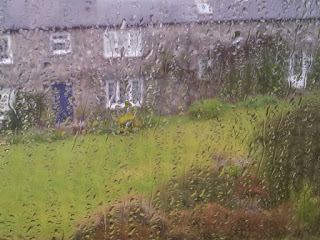Part 4 of a series - 'The valley of dry bones'
< Taking a good look |
Index |
The word of Yahweh >
Now Yahweh says something strange to Ezekiel. He tells Ezekiel to speak to the bones, to prophecy to them. Is there any point in speaking to what is dead?
Let's look carefully at
Ezekiel 37:4.
Then he told me, 'Prophecy to these bones. Tell them, "Dry bones! Hear Yahweh's word."'
There are several important points to notice. If Ezekiel hadn't understood these points the amazing things that are about to happen would not have happened. At least, they wouldn't have happened through Ezekiel.
Yahweh would have found another way, another person to serve him. Ezekiel would have missed out. Hearing is important, and the mechanism for hearing is complex.
Listen and speak - Yahweh spoke to Ezekiel. Ezekiel listened so that he could pass on what he had received. This is the place where we often go wrong. We see a need and we act to meet it, we say what we think best, we do what we think best.
It's good that we want to communicate and act, but it's not good that we decide what to say and what to do. Even Yahshua didn't do this, he set us a good example, he said only what he heard the Father say (
John 12:49-50), he did only what he saw the Father do (
John 5:19).
If we don't get this first step right we become unusable, no good for the eternal purposes of the Most High. Listen first. That's what Ezekiel did and so should we.
It may not make much sense - 'Prophecy to these bones', says Yahweh. Put yourself in Ezekiel's place, try to imagine it. Bones are not animate objects. At one time they were but now they are not. Here's a conversation that didn't take place - but it
might have done. If Ezekiel had been like me it probably would have gone something along these lines...
Yahweh: 'Listen to me carefully.' - Ezekiel: 'Yes, Lord. I'm listening.'
Yahweh: 'I want you to talk to those bones over there, I want you to tell them that..' - Ezekiel: 'Wait, wait, wait. I must be hearing wrong, Lord. You want me to talk to who?'
Yahweh: 'Not who, what. I want you to talk to the bones'. - Ezekiel: 'No, Lord.'
Yahweh: 'No? What do you mean - no?' - Ezekiel: 'Er.. No ears, Lord. I mean the bones can't hear, they have no ears. They won't hear me.'
Yahweh: 'I'll deal with that, you just get on and prophecy, OK?' - Ezekiel: 'But my friends will think I'm stupid.' - Yahweh: 'And your point is?'
Yahweh: 'You're wasting time here, Ezekiel. I need a job done and I need it to be done right away. I'll find someone else.' - Ezekiel: 'No, no. I'll do it. I'll talk to the bones. Can I use a really quiet voice, Lord?'
Yahweh: 'I need a very loud voice for this job. If you're speaking to dry bones you have to speak up.' - Ezekiel: 'But, Lord, I have no idea what to say.'
Yahweh: 'Might that be because I haven' t told you yet? Hmm? You must command them to hear me, even though they have no ears.' - Ezekiel: 'OK-a-a-a-a-y'
Yahweh: 'Tell them, "Dry bones! Hear Yahweh's word."'
Hear his word! - Before Ezekiel can give the message to the bones, he must command them to hear. Assuming we can get past steps 1 and 2, this third step is something we often miss out. Before giving the message we need to command the deaf to hear.
This is a step of preparation. It may require months or even years of prayer. It may mean demanding to be heard over and over and over again. It may mean criticism and derision and even facing serious abuse. But it needs to be done.
There are no short cuts in hearing and speaking, seeing and doing.
Will we be like Ezekiel? Will we be unwavering in our obedience even if we appear foolish or unpopular or at risk?
And is it worthwhile speaking to something that's dead? Yes! Lazarus was dead, Yahshua spoke to him, and he came out of the grave.
< Taking a good look |
Index |
The word of Yahweh >
 It's so easy to live my life with 'me' at the centre. It's called being self-centred and it's not a good thing, not a good thing at all. Yahshua calls us to be other-centred, not self-centred. In fact, I need to live a life focussed first on Father, and then on all those around me. That includes my enemies. What a challenge!
It's so easy to live my life with 'me' at the centre. It's called being self-centred and it's not a good thing, not a good thing at all. Yahshua calls us to be other-centred, not self-centred. In fact, I need to live a life focussed first on Father, and then on all those around me. That includes my enemies. What a challenge!












